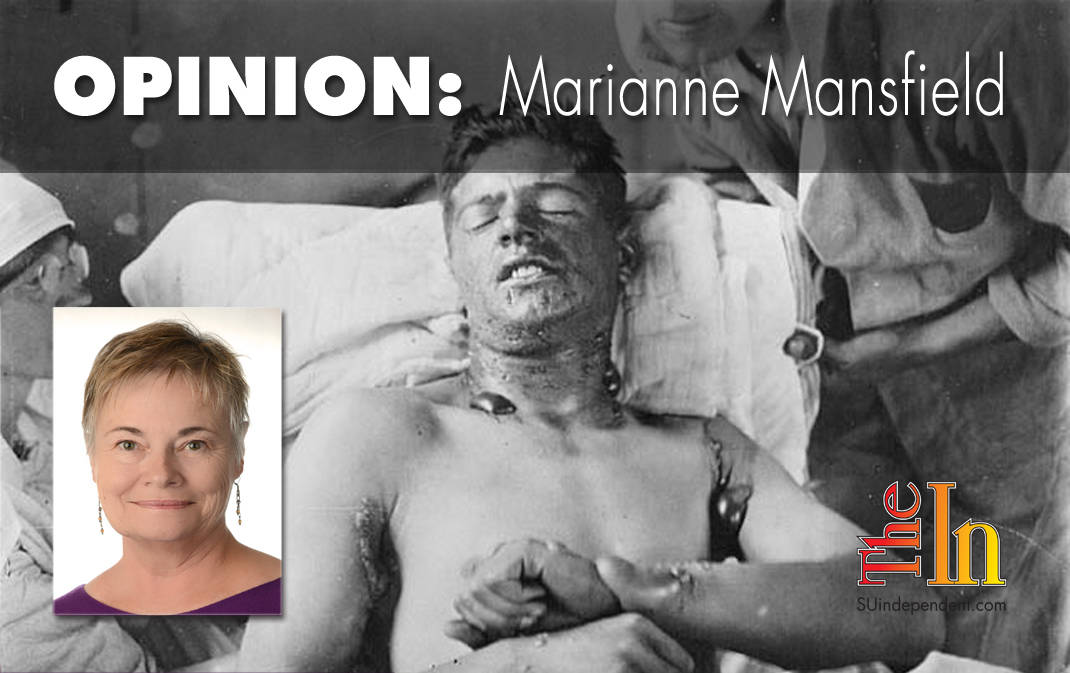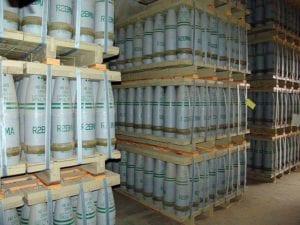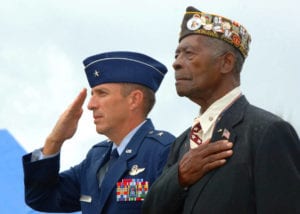
The way it has handled claims involving mustard gas has become the latest scandal to rock the VA. On Tuesday, May 3, Democratic Sen. Claire McCaskill of Missouri announced that she would introduce the Arla Harrell Act to help World War II veterans access their rightly deserved VA benefits resulting from their exposure to mustard gas.
The McCaskill bill would shift the burden of proof from the veteran to the VA to prove that their exposure to the deadly gas is the cause for their illnesses. Their exposure, by the way, was at the hand of the U.S. government, which conducted experiments on young soldiers during World War II to test the effects of mustard gas on the human body.
In short, our side did it to them.
By its own estimates, the U.S. military admits that during World War II nearly 60,000 young male soldiers were exposed to mustard gas, a toxic chemical known to cause skin lesions, blistering, and difficulty breathing. Men were recruited for the experiments with a promise of two weeks paid leave. They were told that their “work” was highly confidential and could not be discussed with anyone. Ever. If they mentioned what they had experienced, they would be subject to dishonorable discharge and imprisonment at Fort Leavenworth.

The experiments were conducted throughout the war but were stepped up when it was thought that chemical attack on the United States by Japan or Germany was imminent. The experiments also included study of the function of gas masks and various types of field gear in protecting soldiers from the chemical.
While this practice demonstrates a heartless and horrible disregard for human life, this was a time when soldiers began being referred to as GIs (government issue). They were considered expendable. Their mission was to protect the motherland, whatever the cost. I’m not sure all that much has changed today. Moreover, much less was known then about how to assess the effects of chemicals on the human body. The government justified its actions by explaining its need to know in order to protect and defend.
What happened next is where this train goes horribly, horrendously off the rails … and where the VA must be held strictly accountable for its conduct.
After World War II, soldiers began to apply for VA medical benefits, citing their exposure to mustard gas as the cause of their illnesses. In turn, the VA regularly turned them down, citing lack of verifiable documentation of their exposure. Remember, these soldiers had been told they were involved in highly confidential activities, given strict and threatening orders not to talk, and their records had been declared highly classified. The records these now-vets could lay their hands on were few and far between.
In 1979, World War II veteran Nat Schnurman (now deceased) sued the U.S. military for compensation, only to be denied based on the legal doctrine that the military cannot be sued for service-related injuries. He was not to be deterred. He began reaching out to other veterans who were victims of mustard gas experiments, and together they pooled what little documentation they could scrape together. In 1990, they went public.
The VA, embarrassed publicly, vowed to make things right for the mustard gas experimentees. They made two promises. The first was that they would contact the 4,000 veterans they knew (knew) were victims. The second promise was that they would streamline the process, making it easier and less dependent upon nonexistent documentation for the vets to get service.
You could say the VA tried to fulfill its promises. But it would be stretching the truth, at the very least. It did reach out to veterans. One letter was sent to each man, although many claim never to have received anything from the VA mentioning mustard gas. In over 20 years, the VA admits to having located only 600 of the 4,000. In just over two months, though, a National Public Radio research librarian, using the VA’s public data base, was able to locate over 1,200.

OKINAWA, JAPAN (Nov. 11, 2008) World War II veteran Harry J. Thomas, right, a Navy Petty Officer 3rd Class in 1945, stands with Brig. Gen. Brett T. Williams, the 18th Wing Commander during the singing of the national anthem at a Veterans Day ceremony at the 18th Wing headquarters at Kadena Air Base. Thomas is the guest speaker for the ceremony. (U.S. Navy photo by Mass Communication Specialist Chief Petty Officer Ryan C. Delcore/Released)
Since it is estimated that nearly 500 World War II veterans die every day in this country, the VA will soon be out of people it should have been trying desperately to locate.
With its second promise, it did no better. It did develop a list of illnesses that it acknowledges being related to mustard gas exposure. Among them were skin cancer, leukemia, and chronic respiratory illness. Admirable as far as it went, however, they still made claimees jump through documentation hoops that were unattainably high and narrow.
Bradley B. Flohr, veterans benefit administrator for the VA, said when questioned that his agency was following federal statutes in processing the claims of mustard gas experimentees.
Enter McCaskill. The McCaskill bill puts the monkey on the VA’s back. The burden of proof will become theirs, not that of the soldier. The organization will no longer be able to hide behind statutes and procedures.
While I applaud her actions, it shouldn’t take something like the McCaskill bill to make this mess right. These are our guys, our young men who are now old or dead. This gets to the heart of the question of whether or not we can trust our government to keep its promises to us and to do what is ethically and morally just. My belief in that ideal continues to be shaken with each debacle like this.
My father was a World War II vet, and I’m married to a Vietnam War-era vet. I have only the hint of an idea what they experienced, and yet I know that we (and by “we” I mean our government acting on our behalf) owe them a huge debt. It is a debt so large that it might never be able to be repaid.
However, to play a hide-and-seek shell game with their health and their lives is shameful. If it takes the Arla Harrell Act to make the VA step up, so be it.
You go, Senator.






